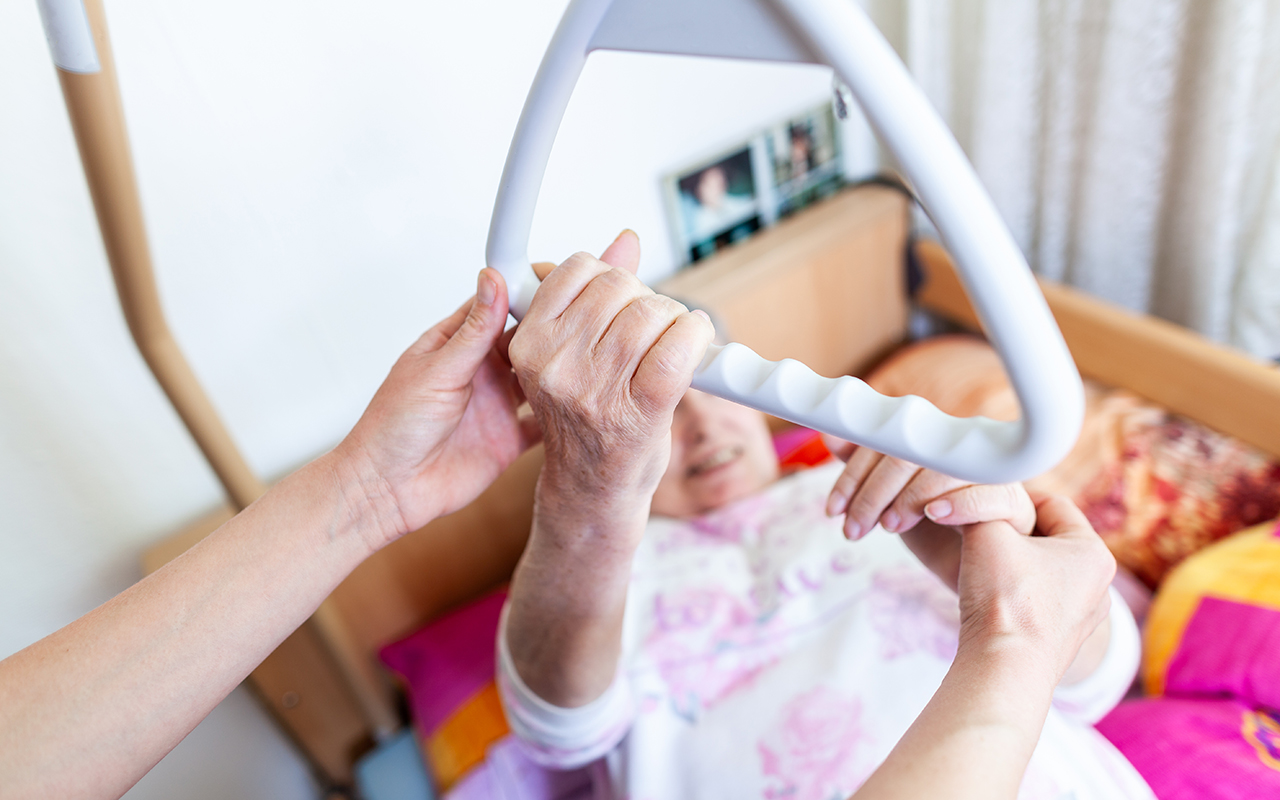Share
Watching a loved one gradually lose his or her memory is heartbreaking. Although growing older is a privilege we want our loved ones to experience, being confronted with dementia is challenging for the loved one and the family. This is an added challenge for family members that take on the role of caregiver. Being a caregiver for a loved one who is suffering from dementia can be both physically and emotionally draining.
Episodes of rage and paranoia can punctuate the gradual decline of cognitive function. The key to being a great source of support for your loved one is to be patient. Also, remember that kindness and regularly reassuring your loved one of your unwavering love is a great way to provide emotional stability.
Tips for Helping a Loved One with Dementia
When talking to a loved one with dementia, express yourself in short, precise sentences. This makes it much easier to understand. Other communication pointers include moderating the tone and pitch of your voice, especially when delivering less-than-positive news. The idea is not to subject them to unnecessary panic, which may aggravate them.
Your loved one may often struggle to make decisions or to communicate clearly, especially when your loved one becomes agitated.
Here are a few tips on what not to do when handling a loved one’s memory loss.
- Do not get frustrated when your loved one says or does something unpleasant.
- Do not take any unusual behavior personally and remember that your loved one does not mean to act out.
- Do not get caught up in arguments with your loved one. Dementia has been associated with increasingly unpredictable mood changes and bursts of rage. Arguing with a loved one suffering from dementia only serves to escalate the problem. Try to de-escalate and create a calm environment.
- Do not constantly correct your loved one. His or her recollection of events and memories may differ from what happened. Dementia patients may be adamant in what they believe to be memories. Engage them in light-hearted, humorous conversations.
In addition to managing healthy communication, living with a loved one with dementia can present many safety concerns. The decline in cognitive functions puts people with dementia at risk of getting hurt or hurting others. Avoid leaving doors unlocked or letting your loved one go outside unattended.
As your loved one continues to be affected by the disease, it is important to review his or her care plan to see if assistance is needed with daily living activities.
Caring Home Care has a list of certified personal care assistants that can provide help with:
- Bathing
- Grooming
- Maintaining a safe and clean environment
- Meal preparation
- Toileting
- Escorting to and from appointments
- Providing a friendly face and mental support
To find out today if your loved one qualifies for caregiver services through their long-term care insurance, click here.
How Caregivers Can Reduce Injury While Assisting Seniors Providing daily care for seniors is meaningful work. It can also be physically demanding. Many caregiver injuries happen during lifting, transferring, or repositioning seniors. These injuries are often preventable when proper techniques are used. Learning caregiver injury prevention strategies protects both the caregiver and the senior. It
Build a Caregiver Support Network: Finding the Help and Encouragement You NeedCaring for a loved one is one of the most meaningful and selfless things you can do. But being a family caregiver can also be emotionally, physically, and mentally draining. Whether you’re new to caregiving or have been doing it for years, building a
The Role of Respite Care: Supporting Caregivers and Seniors Caring for an aging loved one is an act of love, patience, and dedication. However, even the most committed caregivers need time to rest, recharge, and take care of their own needs. This is where respite care for caregivers plays a vital role. By offering temporary
Emotional Challenges of Caregiving Understanding and Coping with the Emotional Toll of Being a Caregiver Caregiving is one of the most rewarding roles a person can take on. It allows individuals to provide meaningful support to a loved one in need. However, it also comes with significant emotional challenges. Whether you’re caring for an elderly
Need A Caregiver? Fill Out Form Below
With our competitive rates, we make receiving in-home care affordable regardless of whether you’re using your insurance or paying out of pocket.







